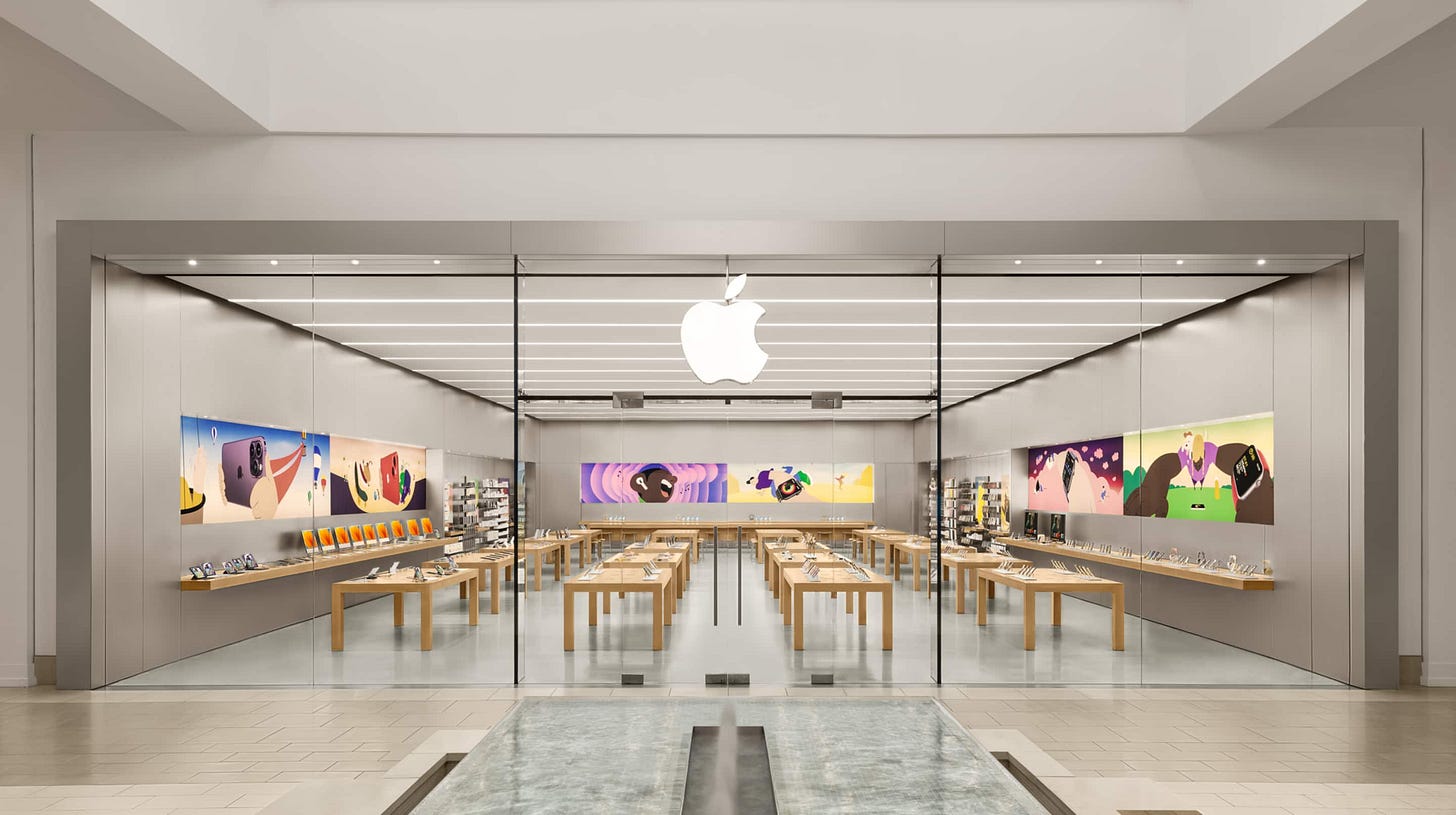07/09/2025: Fifth Circuit Finds Apple Did Not Coercively Interrogate
Also found that Apple did not discriminatorily discard union flyers in the break room.
Apple v. NLRB, 24-60242 (Fifth Circuit)
The Fifth Circuit Court of Appeals reversed a National Labor Relations Board decision that had found Apple violated the National Labor Relations Act (NLRA) in two ways: by coercively interrogating an employee and by removing union literature from a breakroom. The underlying dispute occurred in New York City, but Apple appealed the NLRB’s decision in the Fifth Circuit, which covers Texas, Louisiana, and Mississippi, ostensibly because of its reputation as the most right-wing circuit court.
Background
Jordan Vasquez worked at Apple's World Trade Center retail store in New York. In early 2021, Vasquez formed an organizing committee with colleagues in coordination with the Communication Workers of America (CWA). On May 9, 2022, senior manager Stephanie Gladden approached Vasquez on the sales floor and, according to Vasquez, asked him about unionization efforts at Apple. Six days later, after the organizing committee made its union campaign public, Vasquez and colleagues placed union flyers in the employee breakroom. Apple managers subsequently removed these flyers multiple times, citing both a general housekeeping policy and the company's official Solicitation and Distribution Policy.
Procedural History
The CWA filed an unfair labor practice charge, and the NLRB issued a complaint alleging that Apple violated Section 8(a)(1) of the NLRA. An Administrative Law Judge sustained both charges, finding that Apple coercively interrogated Vasquez and unlawfully removed union materials. The NLRB affirmed this decision in May 2024.
Court's Analysis
Coercive Interrogation Claim
The Fifth Circuit applied the "totality of the circumstances" test to determine whether the interaction between Gladden and Vasquez constituted coercive interrogation. The court considered eight factors:
History of employer hostility (none existed)
Nature of information sought
Questioner's rank
Place and manner of interrogation (occurred in public on sales floor)
Truthfulness of employee's reply
Whether employer had valid purpose
Whether purpose was communicated
Whether employer assured no reprisals
The court found that most factors favored Apple. While Vasquez gave an untruthful response about his union involvement, the court noted that Gladden expressly reaffirmed Vasquez's right to discuss unionization. The Fifth Circuit emphasized that questioning about union activities is not per se illegal and distinguished Apple's case from precedents involving threats, repeated probing, or anti-union animus. The court concluded that substantial evidence did not support the NLRB's finding of coercive interrogation.
Union Literature Removal Claim
The court acknowledged that employees generally have the right to distribute union materials during non-work time in non-work areas, and employers cannot confiscate such materials without special circumstances. However, the court found that Apple consistently applied both its housekeeping policy and Solicitation and Distribution Policy to all unattended written materials, not just union literature.
The court identified three grounds for its holding:
Apple enforced its policies "with equal zeal" across all written materials, including restaurant menus, personal invitations, and promotional flyers
The NLRB's distinction regarding post-break removal was impractical given the constantly busy breakroom with no clear end to break periods
Precedent only forbids "selectively discarding union materials," not the evenhanded enforcement of facially neutral policies
Judge Douglas wrote a concurrence agreeing with the majority's outcome but would have reversed solely on the consistent enforcement of the non-solicitation policy, without reaching the housekeeping policy issue.
Significant Cases Cited
Beth Israel Hosp. v. NLRB, 437 U.S. 483 (1978): Established that employees are entitled to distribute union materials during non-work time and in non-work areas.
Universal Camera Corp. v. NLRB, 340 U.S. 474 (1951): Defined the substantial evidence standard for reviewing NLRB decisions, requiring consideration of "whatever in the record fairly detracts from its weight."
NLRB v. Brookwood Furniture, 701 F.2d 452 (5th Cir. 1983): Established that questioning becomes coercive when "words themselves or the context in which they are used suggest an element of coercion or interference."
Renew Home Health v. NLRB, 95 F.4th 231 (5th Cir. 2024): Applied the totality of circumstances test to evaluate potential coercive interrogation.
Poly-Am., Inc. v. NLRB, 260 F.3d 465 (5th Cir. 2001): Established that an employer violates the NLRA by "selectively discarding union materials."

